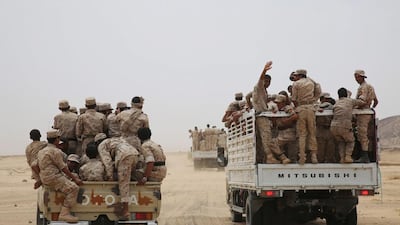With so many dire conflicts in the region, and with the brutal battle for Mosul currently under way, the Middle East could use some positive news. Some came yesterday with the confirmation by the United Nations that a 72-hour ceasefire would begin from tonight in Yemen.
Such a cessation of hostilities is desperately needed. The war to remove the Houthis from Sanaa has had dire humanitarian consequences and has taken a severe toll on the infrastructure of the country. The best estimate is that it will take billions to get Yemen back on its feet – to say nothing of the cost to families who have lost loved ones, homes and businesses.
Yet while a ceasefire is necessary and welcome, it is also important to be cautious. Saudi Arabia’s foreign minister Adel Al Jubeir said on Monday that a longer truce is possible if the Houthi rebels “come to their senses”. Talks in Kuwait dragged on and finally ended in August without a resolution. So far, the Houthis have resisted any genuine compromise.
This remains the root cause of both the political crisis and the conflict itself. It has been two years since the rebels left their stronghold in the far north of the country and overran the capital Sanaa, and more than a year and a half since Saudi Arabia led a military coalition to unseat them.
In the months since, there have been several ceasefires, but none has held for long, usually because the Houthis have used them as opportunities to regroup or to prepare for a second wave of attacks on Yemeni towns and cities. If this one holds – and we have written this so many times that it comes with capitalised letters – it would be a significant breakthrough.
It is certainly overdue. A momentary pause may give an opening for the rebels and the government of Abdrabu Mansur Hadi to return to the negotiating table. Nobody wants to be involved in this brutal war for a day longer than is necessary and the focus on the war in Yemen has distracted regional powers from other crises.
If the ceasefire holds, it could lay the groundwork for a longer, negotiated peace, one that would see the Houthi rebels leave the capital Sanaa. But for that to happen, both the rebels and their main backer, the ex-president Ali Abdullah Saleh, would have to accept that they will not dominate the whole of Yemen again. If they come to that realisation in 72 hours, it would be a real breakthrough.

